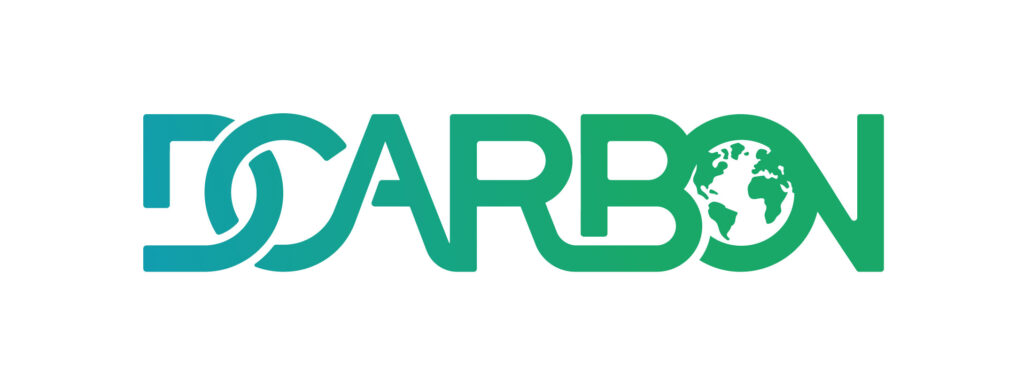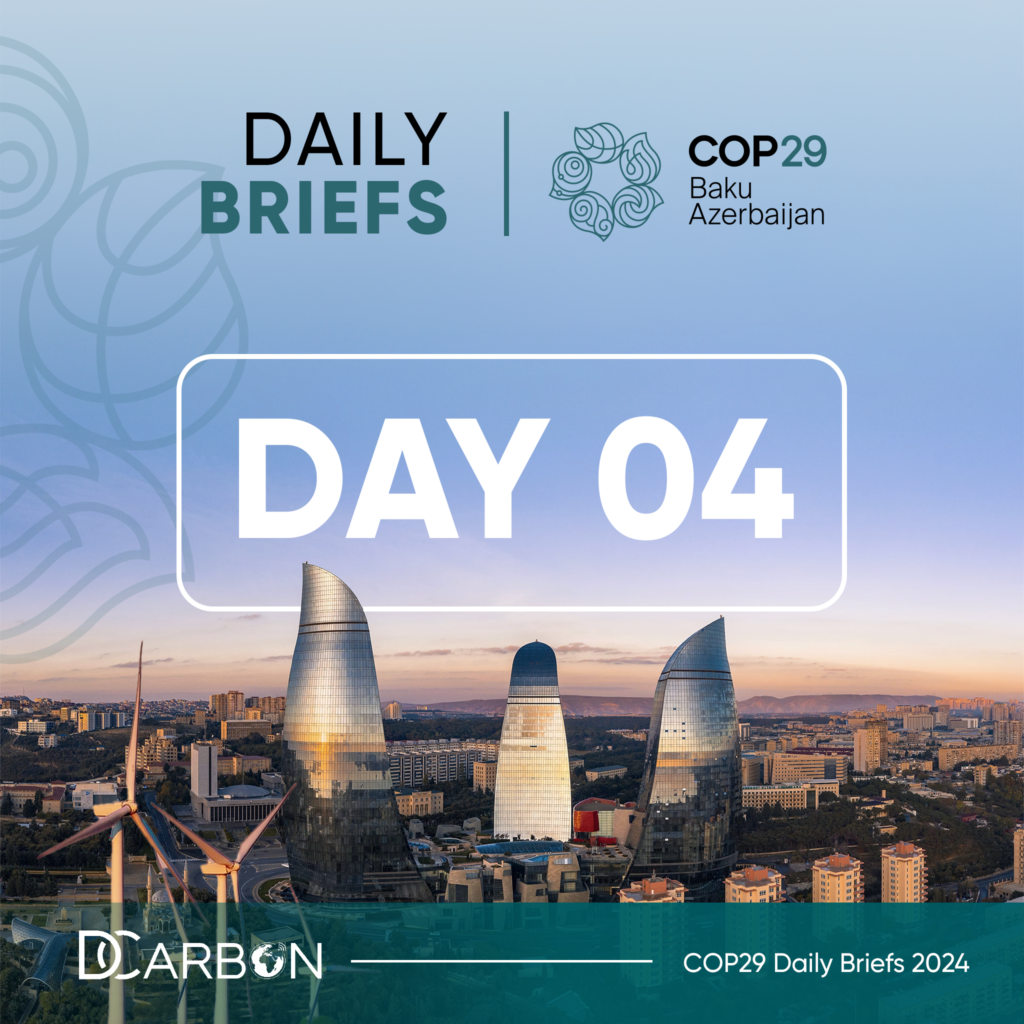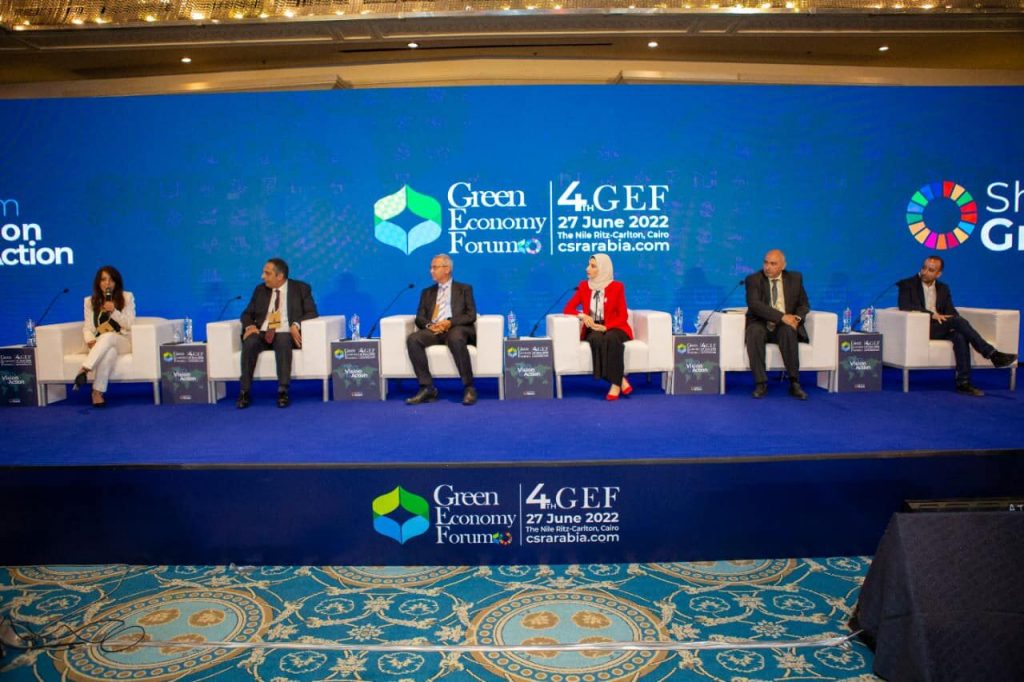Blue Zone
Driving Transformative Climate Action: Shifting the Focus from Financial Inputs to Impact and Multilateral Development Banks (MDBs)’ Catalytic Effect
A roundtable entitled “Driving Transformative Climate Action” tackled the important role of multilateral development banks (MDBs) in scaling up climate finance for emerging markets and developing countries at COP29. The Asian Development Bank (ADB) and COP29 Presidency, hosted the panel that discussed prompting financial inputs to establish impactful climate solutions.
Yalchin Rafiyev, COP29’s Chief Negotiator, stressed that current climate financing is not enough. He called for urgent scaling of funds from both public and private sources to achieve the Paris Agreement goals, including net-zero emissions.
Akinwumi Adesina, President of the African Development Bank (AfDB), also stressed the need for $5 to $11 trillion by 2030 to effectively combat climate change, positioning MDBs as key players in mobilizing these finances.
Agreement Masatsugu Asakawa, President of the Asian Development Bank (ADB), focused on the collaborative efforts of MDBs through the Article 6 Working Group, that helps countries develop carbon markets and non-market approaches to drive climate ambition. He highlighted three priorities for MDBs in 2024-2025: capacity building, infrastructure for carbon markets, and co-creating high-integrity carbon markets. This collaboration, particularly with the recent Article 6.4 standards agreement, aims to accelerate the finalization of Article 6 rules, opening routes for carbon finance to support low-carbon technologies.
ADB is advancing climate action through innovative financing mechanisms like Green and Blue Bonds as well as the Climate Action Catalyst Fund (CACF) that leverage public funds to attract private investments. These initiatives de-risk climate-smart investments and bridge financial gaps, making climate projects more accessible.
ADB also supports countries in aligning their national climate strategies with action. Through the NDC Advance program, ADB helps countries turn their climate commitments into projects, while initiatives like the Fiscal Resilience Facility embed climate into fiscal policies.
MDBs as Catalysts for Systemic Change MDBs, particularly through their work on Article 6, are driving transformative climate action by catalysing investments and aligning financial systems with climate goals. Their focus on innovative finance, capacity building, and system-level change is crucial to achieving the Paris Agreement goals in addition to transitioning to a low-carbon, resilient future.
High-Level Meeting on Baku Initiative for Climate Finance Investment and Trade Dialogue (BICFIT Dialogue)
The Baku Initiative for Climate Finance, Investment, and Trade (BICFIT) Dialogue, launched by the Azerbaijani Presidency, during COP29 is a platform designed to advance global climate action by integrating climate finance, investment, and trade. Co-facilitated by UNCTAD, UNDP, and other international organizations like the WTO and ITC, BICFIT builds on prior COP discussions, addressing climate change and sustainable development related challenges. The initiative supports countries in enhancing their climate strategies, including Nationally Determined Contributions (NDCs), National Adaptation Plans (NAPs), and long-term low-emission strategies, while promoting equitable transitions that benefit vulnerable groups like MSMEs and countries with special needs.
BICFIT offers an inclusive platform for all participating countries and observers to share knowledge and collaborate while respecting national sovereignty. The launch of the Baku Global Coalition for SMEs Green Transitions focuses on the initiative’s that empower small enterprises to adopt sustainable practices, aligning climate action with broader socio-economic goals. COP29 aims to strengthen the synergy between climate policies and economic development, through BICFIT, driving a more sustainable and resilient global transition.
Ministerial Forum on Green Good Governance
A Ministerial Forum on Green Good Governance brought together global leaders to discuss the crucial role of governance in addressing climate change and advancing sustainability at COP29. The forum demonstrated the role of effective governance structures that are essential to ensuring the successful implementation of climate policies, fostering transparency, and promoting accountability in environmental actions. Through integrating principles of good governance with climate policies, governments can enhance the competence of their climate actions, which is critical to achieving the goals of the Paris Agreement.
The forum highlighted best practices in governance from different countries, demonstrating how transparency, inclusiveness, and the rule of law can drive sustainable development. Ministers also discussed the importance of international cooperation in strengthening climate governance, particularly in ensuring that developing countries have the capacity and resources to build robust governance. The forum concluded that green good governance is not only a foundation for effective climate action but also a path to broader socio-economic benefits, including resilience, equity, and sustainable development.
Green Zone
Panel Session on “Climate Finance Landscape in the South Caucasus and Central Asia” Held at COP29 Green Zone
A panel session, “Climate Finance Landscape in the South Caucasus and Central Asia”, analysed the current state, challenges, and future of climate finance in the region, emphasizing sustainable investments, public-private partnerships, and existing financial mechanisms for resilience and adaptation.
A panel discussion featuring Ruslan Khalilov, CEO of the Baku Stock Exchange; Roland Pryce, World Bank Regional Director for the South Caucasus; Bahruz Naghiyev, Deputy CEO of the Executive Board at PASHA Bank; Hiroko Yano, Executive Officer and Director General of Sustainability Management Department at JBIC; and Manas Gizdhuani, CEO of AIFC Green Finance Centre, addressed challenges and opportunities for accelerating climate action in the South Caucasus and Central Asia. The discussion focused on increasing and optimizing financial support and exploring strategic partnerships.
The COP29 Green Zone also hosted several panel discussions throughout the day covering diverse topics such as innovative approaches to sustainable development, carbon emission reduction strategies, industrial sustainability, green technologies, sustainable energy, successful models for resource-based economies, and future prospects. Local and international experts shared their insights. In addition to the panels, the Green Zone’s Extreme Hangout offered film screenings, yoga sessions, and debate-style discussions for visitors.
Leveraging Article 6 Climate Finance for Methane Reduction
The 29th session of the Conference of the Parties to the UN Framework Convention on Climate Change (COP29) included a panel discussion titled “Leveraging Article 6 Climate Finance for Methane Reduction.” In his address at the event organized by SOCAR, Elnur Soltanov, Azerbaijan’s Deputy Energy Minister, shared insights into the ongoing work to reduce methane emissions in Azerbaijan. Highlighting the importance of funding initiatives aimed at reducing methane emissions, Soltanov emphasized that investors, along with local and international financial institutions, should prioritize this issue and actively contribute to solutions.
SOCAR Vice President Afgan Isayev also spoke about generating financial resources for reducing the company’s methane emissions. The speakers highlighted actions taken by major global companies, discussed methane’s impact on the environment, and explored strategies for achieving zero emissions.
Net Zero Roadmap for the cement and concrete sector in Azerbaijan
NEQSOL Holding, NORM and the Azerbaijan Cement Producers Association (ASİA) are proud to invite you to the presentation of ASİA’s Net Zero Roadmap during the COP29 event. Climate change is increasingly seen as a major threat to our planet and humanity, making it essential for us to achieve net zero emissions. In line with this global imperative, the Net Zero Roadmap outlines commitment of Azerbaijan’s cement producers to creating a clear path towards reaching net zero by 2050. This roadmap details the strategies adopted by Azerbaijan’s cement producers to significantly reduce carbon emissions across the entire cement and concrete value chain. Key initiatives include reducing the clinker factor, a major contributor to carbon emissions in cement production, developing alternative fuels, implementing efficient construction designs, and advancing carbon capture technologies.
Azerbaijan’s cement industry has identified leveraging alternative fuels as a critical measure. While the sector already benefits from efficient rotary kiln operations powered by natural gas, significant CO2 emissions remain. Switching to alternative fuels derived from waste could considerably reduce emissions, even eliminating methane emissions from landfills. By 2030, a 30% thermal substitution from alternative fuels is targeted, rising to 60% by 2050, potentially saving over 400,000 tons of CO2 per year. Another pivotal approach involves reducing the clinker factor using supplementary cementitious materials (SCM) such as unburnt limestone and volcanic sand. The goal is to decrease the clinker content from 81% to 60% by 2050, thereby doubling the demand for SCM and requiring adaptive changes to concrete composition standards.
Potential Contributions of Bank ABB and its Partners to Azerbaijan’s Green Growth
This event explored ABB’s sustainability achievements to date and future plans, highlighting partnerships with global institutions to drive sustainable finance and corporate actions to reduce environmental impact. Gaining insights from key industry voices and partners on how ABB empowers clients to adopt greener practices for a sustainable future.
$10 Trillion in Asset Owners Pledge Climate Action at COP29 Finance and Investment Day
At COP29, significant financial commitments were announced to combat climate change. The Asian Development Bank (ADB) launched the “Glaciers to Farms” program, a $3.5 billion initiative to address the catastrophic effects of melting glaciers. This program aims to promote sustainable water use and food security across Central Asia, the South Caucasus, and Pakistan. Supported by the Green Climate Fund (GCF), the ADB will conduct glacier risk assessments in Azerbaijan, Kyrgyz Republic, Tajikistan, and Uzbekistan. These assessments will form the scientific basis for investments in water and agriculture, while also supporting vulnerable mountain communities threatened by glacial melt.
Azerbaijan’s banking sector pledged $1.2 billion for green and sustainable projects through 2030. Announced by Zakir Nuriyev, President of the Azerbaijan Banks Association, this funding will help drive Azerbaijan’s transition to a low-carbon economy. The initiative is guided by a new green taxonomy introduced by the Central Bank of Azerbaijan to steer sustainable investments. Sweden announced a $730 million contribution to the UN Green Climate Fund (GCF) to aid low- and middle-income countries in investing in adaptation measures and emission reduction initiatives. This adds to the €19 million Sweden contributed earlier to the Fund for Loss and Damage, bringing their total COP29 commitment to $749 million.
Climate Innovation Zone
NDCs 3.0: Driving ambition through public-private collaboration
Global ambition could be tripled by incorporating current technical advancements, national commitments, and industries. Funding, creativity, experience, and examples of successful transitions, in the business sector will significantly contribute to the creation of more ambitious NDCs. The panel spread awareness on how organizations can enhance ambitious and consistent climate regulations.
From Promise to Progress: Tackling the Climate Implementation Gap Sectors
Development aid, including climate money, is often promised, yet obstacles including poor technical support, delays in project execution, and a lack of institutional capacity, especially in conflict zones, prevent tangible impact. Progress towards the SDGs and global climate targets is thwarted by this gap, particularly in the most vulnerable areas. Development initiatives must be successfully implemented in these situations to provide long-term stability and resilience as well as immediate alleviation.
Building Tomorrow: Sustainable Smart Cities
By 2050, 70% of the world’s population will reside in cities, 85% of them with emerging markets. Realizing how crucial sustainable design and procurement are to the prosperity and affluence of cities. Cities, their infrastructure, and transportation may be made cleaner, safer, and faster by working together across the challenging industries that comprise the Built Environment, such as steel, cement, energy, and shipping, to find a more financially viable solution. It is essential to embark on the potentials of AI and data visualization technologies that might enhance asset management and city planning.
Transition Plans: Establishing best practice for the hard-to-abate sectors
This panel aimed at collecting insights on how multinationals’ reports and plans are yielding financial rewards and to provide the audience with an overview of how to strengthen their chances with financial institutions through climate-related revelations.
Climate Leader Insight: The Six Secrets of Circularity
The Ellen MacArthur Foundation asserts that a circular economy offers a chance to reduce the emissions by 40% worldwide by 2050. How do businesses institutionalize circularity across domains including finance, infrastructure, policy, and more? What are the forces behind the shift to a circular economy?
How are governments and businesses making the best use of this? What part does international cooperation play in creating a legally enforceable international instrument on plastic pollution? One example of this is the upcoming plastic treaty that will be considered at the fifth session of the Intergovernmental Negotiating Committee. This discussion acts as a platform for suppliers and customers to share how they are collaborating with their stakeholders to develop circular models, implementing plans, integrating technology, and working across the value chain.
Futureproofing Your Supply Chain: Mastering circularity and policy shifts for market success
One of the key objectives of this panel was to understand the implications of key regulations for one’s company, such as the Corporate Sustainability Due Diligence Directive (CSDD) in Europe and the imminent global plastic treaty in Busan, and what is needed to guarantee operations that are suitable for the future. The panel tackled practical strategies for mapping, involving, and assisting SME suppliers in their sustainability transformation, such as establishing challenging but doable goals and offering resources and training.
Harnessing Biodiversity for Resilience and Net-Zero Success
The participates discussed the economic benefits of companies in protecting natural areas and enhancing nature-based solutions and identifying opportunities for biodiversity conservation and restoration. This will enable them to evaluate the biodiversity footprint along the value chain utilising techniques such artificial intelligence (AI) and frameworks like the TNFD. Cutting-edge methods for carbon offsetting that involve biodiversity restoration and how using natural capital can bring us closer to net-zero goals were also discussed.
The Road to 2030
Learn about the policy changes that are bolstering and advancing the green economy from climate leaders in important markets and about the exerted efforts to ensure an inclusive transition.
References:
https://cop29.az/en/programming?page=1&thematic_days%5B%5D=54
https://asia.org.az/asia-report-2024.pdf





